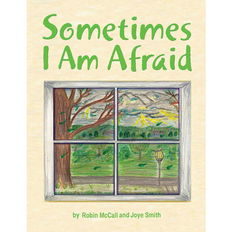Supporting Preschoolers Whose Families Are Dealing with Stressful Situations

Blogs in this Series
Ways to Help Preschoolers Dealing with the Divorce of Parents
In the US, 40–50% of marriages end in divorce. It’s likely you will have one or more preschoolers in Mission Friends who are living with parents who are divorced or will soon be divorced. Divorce ofte
Supporting Preschoolers Whose Families Are Dealing with Stressful Situations
When we discuss mental health and preschoolers, we consider ways to help them grow in mentally healthy ways and learn to deal with difficult issues in age-appropriate ways. What can a preschool leader
Modeling Healthy Relationships for Preschoolers
Preschool leaders can help preschoolers learn to navigate the world of relationships as they model how healthy relationships work. Here are some ways to help preschoolers build stronger relationships
Supporting Preschoolers’ Social and Emotional Health
How preschoolers learn to relate, communicate, and function with others determines who they are becoming and how they see and understand the world. Their social and emotional development is what drive
Actions that Influence Positive Mental Health in Preschoolers
Mental health in preschoolers is a hot topic. Given post–COVID-19 dynamics, we are more aware that solid mental well-being at all ages is vital. Years of scientific research have taught us that not on
4 Tips to Foster Positive Mental Health in Preschool Environments
Fostering positive mental health in preschoolers involves many factors. We know that strong mental health is based on safety: physical safety, mental safety, and emotional safety. Developing and maint
Factors that Impact Preschoolers’ Mental Health
Preschoolers grow in all areas: physically, cognitively, socially, emotionally, and spiritually. Each of these areas has an impact on the mental health and well-being of preschoolers. Let’s look at fa
Mental Health Impact on Families: How to Help
According to the National Alliance on Mental Illness, one out of every five adults in the US experience a mental illness each year.¹ As we think of the millions of people that statistic represents, co
Mentally Healthy in the Preschool Years
We tend to think of the first few years of a child’s life as a happy time with no worries. We may think of childhood as being free from the cares of this world. Yet, in reality, this often isn’t the case.
The Mental Health of Preschoolers and Families
Healthy bodies and healthy minds. That is what we want for our preschoolers as they grow. We make sure preschoolers eat healthy foods, place limits on unhealthy foods, and ensure they get the sleep ne
Ways to Support Preschoolers Dealing with a Death in the Family
Death is never an easy subject to broach, even with adults, let alone preschoolers. Grief and loss are multifaceted processes that each person approaches differently. There are several key things to remember when discussing these topics with preschoolers.












